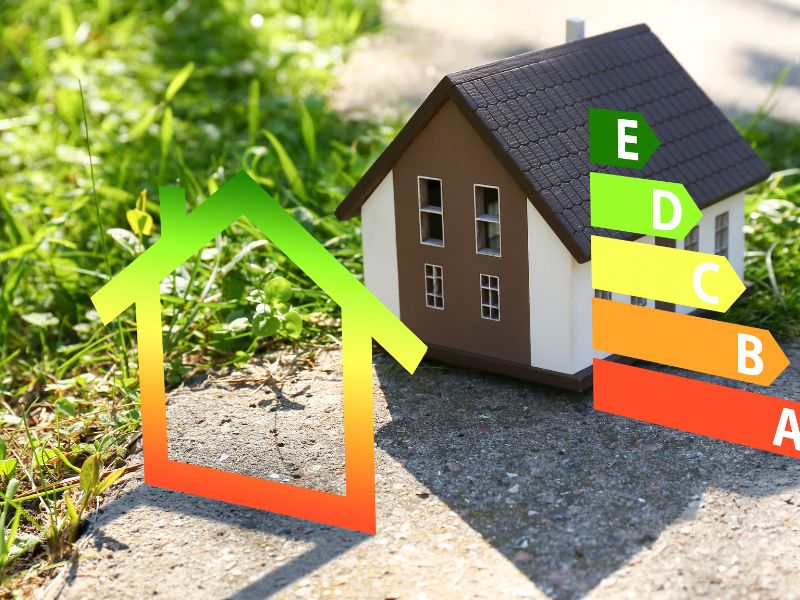 Last week’s economic reports included readings from Case-Schiller Home Price Indices and National Association of Realtors® data on pending home sales. The Conference Board of the U.S. Senate also released its Consumer Confidence Index. Weekly readings on mortgage rates and first-time jobless claims were also released.
Last week’s economic reports included readings from Case-Schiller Home Price Indices and National Association of Realtors® data on pending home sales. The Conference Board of the U.S. Senate also released its Consumer Confidence Index. Weekly readings on mortgage rates and first-time jobless claims were also released.
Case-Shiller Reports 0.10 Percent Uptick in National Home Price Index
The National Home Price Index issued by Case-Shiller for October reported a year-over-year increase of 3.20 percent in home prices. Case-Shiller’s 20-City Home Price Index reflected the influence of low inventories of affordable homes as pricey metro areas reported slower growth if not declines in home-price growth.
The top three cities reporting highest year-over-year home prices were Phoenix, Arizona with5.80 percent growth; Tampa, Florida with 4.90 percent growth and Charlotte, North Carolina, which had 4.80 percent home price growth.
Analysts said that the shift in higher home-price growth rates to smaller eastern and southern metro areas was evidence of continued shortages of affordable homes in coastal and major metro areas. Home prices in San Francisco, California declined for the third consecutive month in October after posting double-digit home price growth in recent years.
Pending home sales, which are sales for which purchase offers have been made but not completed, rose 1.20 percent in November as compared to October. Regionally, pending home sales reports were mixed. The Western region led with a 5.50 percent growth rate in pending home sales. Pending home sales were 1.00 percent higher in the Midwest and fell by -0.10 percent in the Northeast. Pending home sales fell by 0.20 percent in the South.
Lawrence Yun, the chief economist for the National Association of Realtors®, said that “The supply of available homes is not yet meeting healthy demand.” Real estate pros consider pending home sales a gauge of future closings.
Mortgage Rates, New Jobless Claims Dip
Freddie Mac reported lower average mortgage rates last week; 30-year fixed-rate mortgages averaged 3.72 percent and were two basis points lower. Rates for 15-year fixed-rate mortgages fell by three basis points and averaged 3.16 percent. The average rate for 5/1 adjustable-rate mortgages was one basis point higher at 3.46 percent. Discount points averaged 0.70 percent for fixed-rate mortgages and 0.30 percent for 5/1 adjustable-rate mortgages.
New jobless claims fell by 2000 claims to 222,000 claims filed last week; analysts expected a reading of 223,000 initial jobless claims filed. The U.S. Conference Board reported a lower consumer confidence reading of 126.50 in December, but this was caused by an upwardly-revised November index reading of 126.80.
Consumer confidence in current economic conditions rose 4.40 points to 170.00 points, but this momentum was offset by the reading for consumer confidence in economic conditions over the next six months from 100.30 points to 97.40 points. Analysts said that flagging consumer confidence indicated that the economy is not likely to grow significantly in the next six months.
What’s Ahead
This week’s scheduled economic news includes labor sector readings on private and public job growth and the national unemployment rate. Weekly readings on mortgage rates and initial jobless claims will also be released.
Last week’s economic reports included readings from Case-Schiller Home Price Indices and National Association of Realtors® data on pending home sales. The Conference Board of the U.S. Senate also released its Consumer Confidence Index. Weekly readings on mortgage rates and first-time jobless claims were also released.
Case-Shiller Reports 0.10 Percent Uptick in National Home Price Index
The National Home Price Index issued by Case-Shiller for October reported a year-over-year increase of 3.20 percent in home prices. Case-Shiller’s 20-City Home Price Index reflected the influence of low inventories of affordable homes as pricey metro areas reported slower growth if not declines in home-price growth.
The top three cities reporting highest year-over-year home prices were Phoenix, Arizona with5.80 percent growth; Tampa, Florida with 4.90 percent growth and Charlotte, North Carolina, which had 4.80 percent home price growth.
Analysts said that the shift in higher home-price growth rates to smaller eastern and southern metro areas was evidence of continued shortages of affordable homes in coastal and major metro areas. Home prices in San Francisco, California declined for the third consecutive month in October after posting double-digit home price growth in recent years.
Pending home sales, which are sales for which purchase offers have been made but not completed, rose 1.20 percent in November as compared to October. Regionally, pending home sales reports were mixed. The Western region led with a 5.50 percent growth rate in pending home sales. Pending home sales were 1.00 percent higher in the Midwest and fell by -0.10 percent in the Northeast. Pending home sales fell by 0.20 percent in the South.
Lawrence Yun, the chief economist for the National Association of Realtors®, said that “The supply of available homes is not yet meeting healthy demand.” Real estate pros consider pending home sales a gauge of future closings.
Mortgage Rates, New Jobless Claims Dip
Freddie Mac reported lower average mortgage rates last week; 30-year fixed-rate mortgages averaged 3.72 percent and were two basis points lower. Rates for 15-year fixed-rate mortgages fell by three basis points and averaged 3.16 percent. The average rate for 5/1 adjustable-rate mortgages was one basis point higher at 3.46 percent. Discount points averaged 0.70 percent for fixed-rate mortgages and 0.30 percent for 5/1 adjustable-rate mortgages.
New jobless claims fell by 2000 claims to 222,000 claims filed last week; analysts expected a reading of 223,000 initial jobless claims filed. The U.S. Conference Board reported a lower consumer confidence reading of 126.50 in December, but this was caused by an upwardly-revised November index reading of 126.80.
Consumer confidence in current economic conditions rose 4.40 points to 170.00 points, but this momentum was offset by the reading for consumer confidence in economic conditions over the next six months from 100.30 points to 97.40 points. Analysts said that flagging consumer confidence indicated that the economy is not likely to grow significantly in the next six months.
What’s Ahead
This week’s scheduled economic news includes labor sector readings on private and public job growth and the national unemployment rate. Weekly readings on mortgage rates and initial jobless claims will also be released.




![EdCurrie_Logo White[Transparent] EdCurrie_Logo White[Transparent]](https://edcurrie.com/wp-content/uploads/elementor/thumbs/EdCurrie_Logo-WhiteTransparent-qybu3sjgpfhje9098uitv7fpt7os2hgn52gfy6ocx4.png)